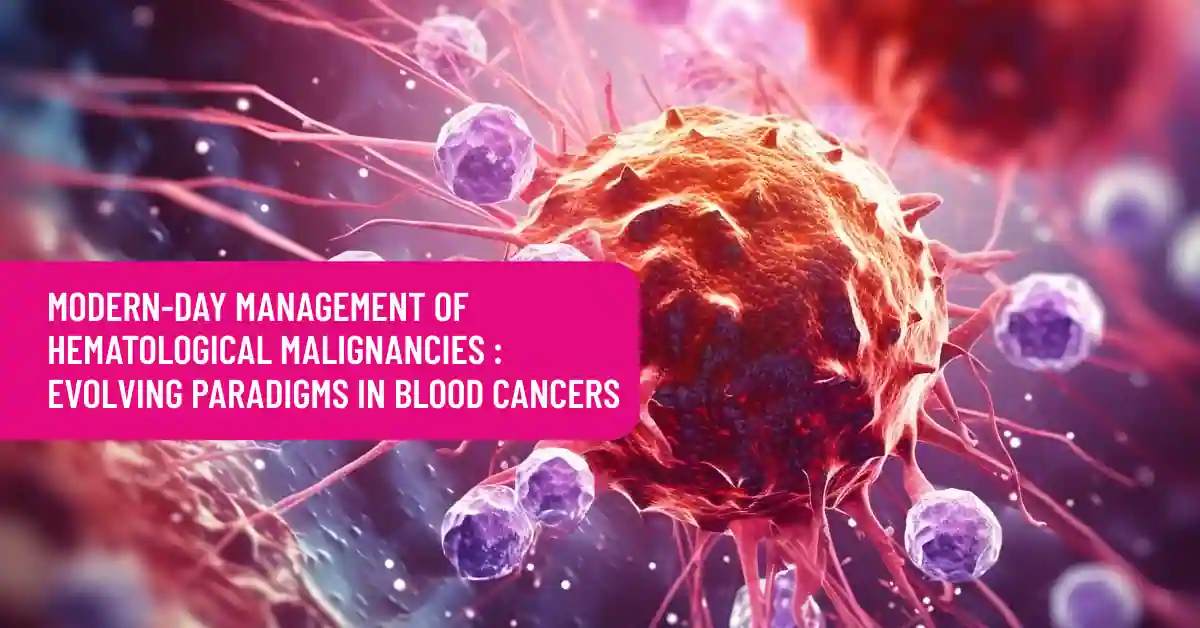Ahead of VIPOS 2025
Hematological malignancies—cancers of the blood and lymphatic systems—have seen remarkable advancements in diagnosis and treatment over the past decade. Once managed primarily with chemotherapy, today’s approach is increasingly personalized, incorporating targeted therapies, immunotherapy, cellular therapies, and precision medicine strategies.
As we prepare for a deep dive into these evolving paradigms at the VIPOS 2025 conference, here’s an overview of how modern oncology is transforming care for some of the most commonly encountered blood cancers: multiple myeloma, diffuse large B-cell lymphoma (DLBCL), follicular lymphoma, chronic leukemias, and Hodgkin lymphoma.
Multiple Myeloma: From Chemotherapy to Precision Medicine
Multiple myeloma, a cancer of plasma cells, has undergone one of the most dramatic shifts in treatment. Today, the standard of care involves a combination of proteasome inhibitors, immunomodulatory drugs, and monoclonal antibodies. For eligible patients, autologous stem cell transplantation remains a key part of first-line therapy.
The introduction of CAR T-cell therapies and bispecific antibodies has opened new avenues for patients with relapsed or refractory disease. These immune-based therapies harness the power of the patient’s own immune system to target and destroy myeloma cells, offering renewed hope in advanced cases.
Diffuse Large B-Cell Lymphoma (DLBCL): Rapid Innovation in Aggressive Lymphomas
DLBCL is the most common type of non-Hodgkin lymphoma and is aggressive in nature. The R-CHOP regimen has long been the frontline standard, curing many patients. However, outcomes remain poor in relapsed or refractory cases.
Recent breakthroughs include the use of CAR T-cell therapies, antibody-drug conjugates, and targeted therapies guided by molecular subtyping. Personalized risk stratification is helping clinicians tailor treatment intensity and sequence more effectively.
Follicular Lymphoma: Chronic Disease, Smarter Treatment
Follicular lymphoma (FL) is typically indolent but considered incurable. For many, a “watch and wait” strategy is appropriate until symptoms arise. When treatment is initiated, combinations of anti-CD20 monoclonal antibodies with chemotherapy or novel agents like lenalidomide are commonly used.
Modern management focuses on minimizing toxicity while prolonging remission. Genomic and MRD-based tools are increasingly guiding treatment duration and intensity.
Chronic Leukemias: A Shift to Targeted and Time-Limited Therapy
Chronic Lymphocytic Leukemia (CLL)
CLL is now predominantly managed with chemo-free regimens, including BTK inhibitors (ibrutinib, acalabrutinib) and BCL-2 inhibitors (venetoclax). Time-limited combination approaches are becoming the new norm, allowing some patients to stop therapy while maintaining remission.
Chronic Myeloid Leukemia (CML)
CML has become a success story in oncology. The advent of tyrosine kinase inhibitors has turned it into a chronic, manageable disease. Some patients can now achieve treatment-free remission, marking a major shift in quality of life and long-term outcomes.
Hodgkin Lymphoma: Combining Cure with Long-Term Wellness
Hodgkin lymphoma, particularly affecting adolescents and young adults, boasts one of the highest cure rates among cancers. Traditional ABVD chemotherapy regimens have been highly effective, and PET-guided treatment approaches now help reduce long-term toxicity by de-escalating therapy when possible.
In relapsed or refractory cases, the landscape has changed significantly with the use of checkpoint inhibitors (like nivolumab and pembrolizumab) and brentuximab vedotin, an antibody-drug conjugate targeting CD30. These therapies are improving survival with fewer side effects.
Long-term follow-up care is also a focus, ensuring survivorship programs address fertility, cardiovascular health, and secondary cancer risk in this predominantly young population.
The Future of Blood Cancer Care: Personalized, Precise, and Patient-Centered
Across all hematological malignancies, the future lies in precision oncology—leveraging genetic, molecular, and immunological information to guide therapy. Minimal residual disease (MRD) tracking, molecular tumor boards, and integration of real-world evidence are becoming standard components of modern care.
Looking Ahead to VIPOS 2025
At VIPOS 2025, these themes will be explored in depth across sessions such as:
* Cutting-edge updates in CAR T-cell therapy and bispecific antibodies
* Management of relapsed/refractory lymphomas and leukemias
* Hodgkin lymphoma: balancing cure with long-term quality of life
* How MRD and genomics are reshaping treatment decisions
Whether you’re a clinician, researcher, policymaker, or patient advocate, VIPOS 2025 will offer an in-depth look at the transformative progress in the world of blood cancers.
Join us at VIPOS 2025 to engage in the future of hematologic cancer care, where science meets survivorship and precision meets possibility.


